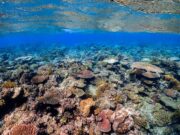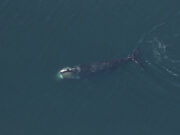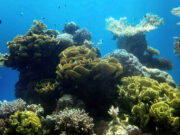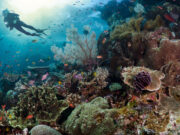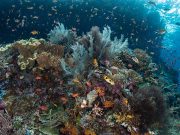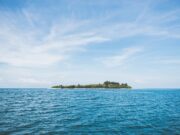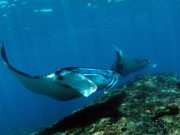Over the past century the world has seen an unprecedented decline in biodiversity triggered by climate change, habitat loss, overexploitation and pollution. Matthew H Nash has taken a deep dive look into how nations rank in terms of biodiversity around the globe in 2022.
Marine species weren’t separated out of the findings, but fish did have their own analysis.
Countries with the most fish species
Australia came top with nearly 5000 different species of fish. Perhaps a reflection of its size and research activity. Australia’s coast is diverse, with tropical coral reefs in the north and temperate seas in the south. In second place, Indonesia has the largest marine area in Coral Triangle.
1. Australia: 4,992
2. Indonesia: 4,813
3. Brazil: 4,738
4. Japan: 4,098
5. China: 3,476
Australia has the third largest marine jurisdiction in the world covering 8.2 million square kilometres (1). Indonesia has 1.6 million km2 of coastal waters, Brazil 3.6 million, Japan 1 million and China 5 million km2.
Countries with a coastline with the least fish species
- Nauru
- Finland
- Belgium
- Netherlands
- Macau
Nauru, in the Pacific, is one of the smallest countries in the world. Finland juts into the Baltic Sea which has challenges from pollution, algae blooms, over fishing, and invasive species.
The Greatest Threats To Biodiversity
Matthew H Nash comments in his report “According to the World Wildlife Fund, the loss of species we are experiencing today is somewhere between 1,000 and 10,000 times greater than the natural extinction rate. While we don’t know exactly how many species of plants and animals are out there, a low estimate is that we could be losing 200 to 2,000 species every year, while a high estimate is between 10,000 and 100,000 species.”
Why is biodiversity so important?
Biodiversity offers a variety of benefits to our planet. Most importantly, plant and animal species support the ecosystems we rely on. They aid in pollination, soil fertility, food and medicine production, air quality, and much more. Losing too many species would negatively affect the balance of our world.
Read the full report at https://theswiftest.com/biodiversity-index/


